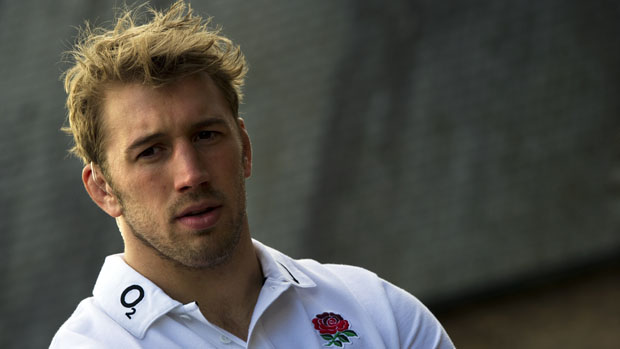The remarkable survival story of Six Nations rugby
As the Six Nations rugby tournament kicks off, Channel 4 News Senior Programme Editor Ben Monro-Davies looks at a tournament which can “render great players clowns and journeymen national heroes”.

(Above: England captain Chris Robshaw. Picture Getty)
It is the week to hail all that is new. A company that didn’t exist at the beginning of the century looks set to turn its founder into the fourth richest man in the world. And yet this weekend, a tournament begins with a history almost as deep as Mark Zuckerberg‘s pockets, and in its own terms, as successful as the social network.
In 1883, after a just a decade of international rugby, the home nations championship began. By 1910 France had formally joined – they were kicked out for a period in the 1930s – and the 21st century saw five become six with the advent of Italy. And now the latest Six Nations begins with every game expected to be a sell-out, and Italy even moving to the Olympic Stadium in Rome to cater for more fans.
Perhaps it’s best not try and work why it succeeds. Identifying the genie might also kill it.
It is a remarkable survival story. Rugby league once threatened to lure away all the best players. Many thought the advent of world cups, professionalism and easy international travel would render a contest, conceived around ancient local rivalries, anachronistic.
Others thought England and France would start winning every game so easily once players started playing for money that they would seek a different annual challenge. But it all begins again later in Paris in fine health.

(Above: Wales v England in a Home Nations rugby international, 1904. Picture: Getty)
Its success is particularly interesting given the struggle other equally historic competitions are facing. The FA Cup, for all the rhetoric, is no way the national centre-piece it once was. Test cricket between England and Pakistan is currently being watched by a handful in the Middle East. And football’s Home International Championship survived a hundred years until 1984.
Perhaps it’s best not try and work why it succeeds. Identifying the genie might also kill it. There’s surely a percentage of Facebook‘s market cap which defies any explanation offered by numbers of users and advertising revenues.
The pressure, the history, can render great players clowns and journeymen national heroes.
But it’s safe to say that something based around the oldest national enmities has an irresistible romance. Tom English’s excellent book The Grudge, argues the famous England-Scotland Grand Slam decider in 1990 became as much about the poll tax as the sporting glory at stake.
What backdrop will the recently announced referendum on independence provide to the Calcutta Cup match?

(Above: England’s Six Nation’s team in training this week. Picture: Getty)
And its other brilliant ingredient is unpredictability. Perhaps that itself stems from ancient rivalry – England and France actually fare better in world cups than they do in the Six Nations. I would be more confident of England beating mighty southern hemisphere opposition than Wales in Cardiff. The pressure, the history, can render great players clowns and journeymen national heroes.
With that in mind is it a near certainty that heavy favourites France will screw it up?
They reached the world cup with a universally derided coach – now they have a good one in Philippe Saint-Andre. Wales were brilliant in the world cup but have several injuries and no Shane Williams. Ireland have been too old for years – but in the world cup somehow thumped Australia.
England have perhaps had the worst six months in English rugby history after dwarf-throwing their way to infamy in New Zealand. Scotland can’t score a try and Italy just aren’t very good. The form book dictates the teams will end up in that order. But the only real certainties are that every seat will sell, the tournament will be back next year and Mark Zuckerberg is loaded.
Ben Monro-Davies is a senior programme editor at Channel 4 News.